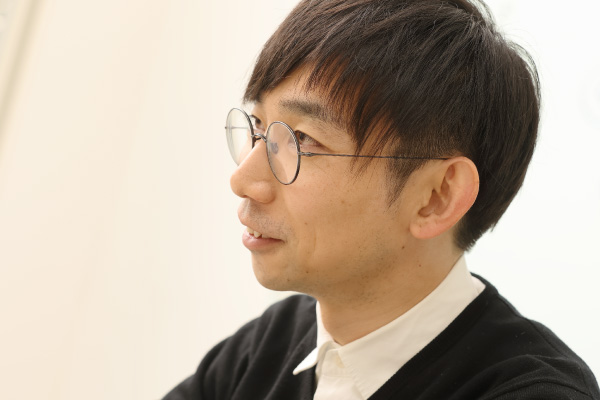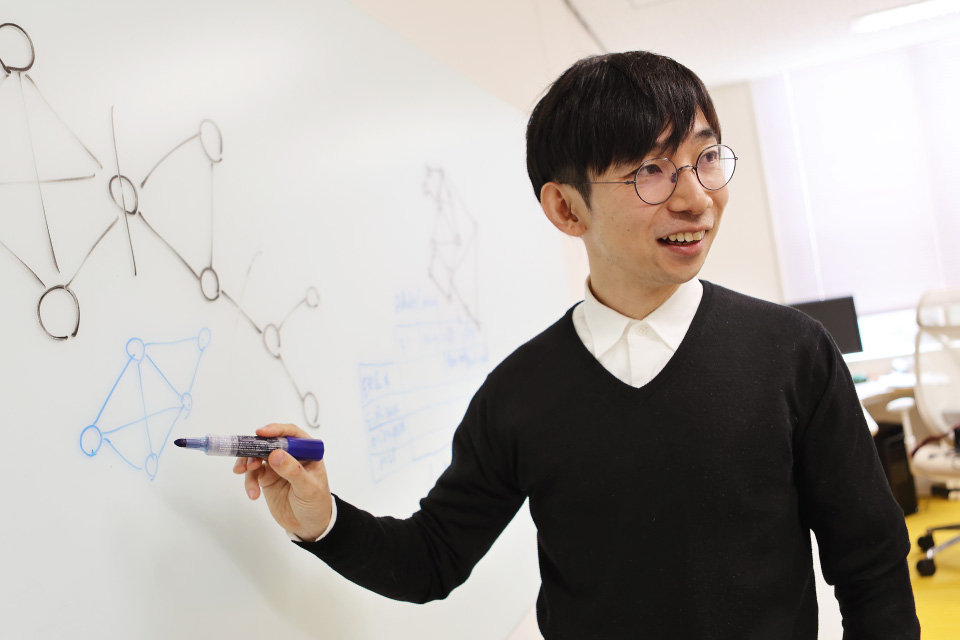Course of Big Data Engineering,
Department of Multimedia Engineering
Associate Professor
Sasaki Yuya
How did you come to transfer to Osaka University?
I transferred to the School of Engineering at Osaka University from Kushiro National College of Technology in Hokkaido. This means I started life as an Osaka University student from the third year of the undergraduate program.
To be honest, the early days were tough. By the time I joined, most third-year students had already formed close friend groups, so it was difficult to figure out how to make friends or even how to start a conversation. However, this experience helped me develop strong communication skills, which I now use with confidence even when working abroad. While difficult experiences may seem discouraging at the time, I’ve learned that they often contribute to personal growth and become valuable assets later on.


What do you usually talk to your students about?
I often talk about two things: “individualism vs. collectivism” and “purpose vs. goals.”
When I speak of individualism and collectivism, I’m referring to how we live in society. Individualism means doing what you love. Collectivism means working for the benefit of society, organizations, or communities.
In a group where only individualistic values dominate, it doesn’t necessarily mean everyone gets to do what they love. Without consideration for society's development, issues like public safety deteriorate, interpersonal conflicts increase, and in the worst case, wars may arise.
On the other hand, if everyone only prioritizes collectivism, personal expression is suppressed, and innovation may be stifled. History shows that society progresses when individuals are empowered to create change. The key is balance—a society where people can pursue what they want (individualism), while also aiming to help others (collectivism).
The second topic is the difference between “purpose” and “goals.”
Your purpose is your ultimate destination—like hitting the bullseye in archery. Once you reach it, the journey ends. A goal, however, is like a milestone or a signpost that guides you toward your purpose; it’s more of a means to an end.
Let’s say your desire is to “become rich.” If your real motivation is to “live in a big house” or “travel the world,” then wealth is just a goal, not your true purpose. In that case, you may not need to become wealthy at all.
I often tell students: “Define what you truly want as your purpose.”
If your purpose is simply “to enter university,” you might feel lost once you’re admitted. It’s more important to discover what you really want to achieve and then take action. If that’s clear, everything else becomes secondary. You may not even need to focus on a specific university.
Once you’ve defined your purpose, you can choose from a wide range of options that align with your strengths. Even if you fail to meet one goal, you can always come up with new ones. With a solid purpose, the small details stop bothering you, and you can focus on what truly matters.









